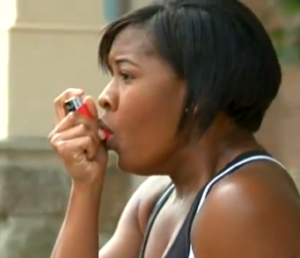November 06, 2015 | Black & Kletz Allergy

Most of us have to contend with a few upper respiratory infections (e.g., cold, flu, sinusitis) each year. Viruses are the usual culprits and the rhinovirus is the most common virus causing upper respiratoryinfections in all age groups. Respiratory syncytial virus (RSV) usually affects the upper and lowerrespiratory tracts in infants and young children.
Upper respiratory tract infections are usually mild self-limited illnesses in otherwise healthy children and adults. The common symptoms of nasal congestion, runny nose, post-nasal drip, sneezing, sore throat, achiness, and an occasional dry cough may last for about a week. However, in individuals with a history of asthma, these infections can trigger a flare-up of their asthma by causing wheezing, coughing, chest tightness, and/or shortness of breath. Once the asthma symptoms are triggered, they can linger for several days to weeks, even after recovery from the infection.
Viral infections also can predispose one to secondary bacterial infections which can lead to complications like sinus infections causing discolored nasal discharge, facial (sinus) pressure and pain, persistent mucus drainage into throat, and coughing. Fever, chills, night sweats, fatigue, coughing up discolored sputum, and/or soreness in the chest while breathing, may be indicative of pneumonia. A few precautions may help prevent or alleviate respiratory infections and reduce the risk of asthma exacerbations:
- Viruses causing respiratory infections are highly contagious. Avoid contact with others with active infections can minimize the risk of contracting the illness.
- Wash hands frequently with soap and water. This will eliminate most germs causing infections. Hand sanitizers are useful while traveling.
- Refrain from touching one’s eyes, nose, and mouth which can minimize the germs from entering into the body.
- An annual influenza vaccine (i.e., flu shot) is highly recommended in all children (above 6 months of age) and adults with asthma. FluMist (the flu nasal spray vaccine) is not indicated in asthmatics and only approved for use in persons 2 through 49 years of age.
- Many children and adults also benefit immensely from a pneumonia vaccine to prevent bacterial infections from pneumococcus, a type of bacteria that causes respiratory tract infections. The two most common vaccines available are Prevnar 13 and Pneumovax. It is important to check with your primary care physician to check for documentation of what type of pneumonia shot you may have had and when it was administered. Depending on this information, your physician will recommend which type of pneumonia vaccine may be needed and when it should be given. The age of the patient, underlying diseases, and history of previous vaccinations all will play a role in determining what, when, and if the vaccine is needed.
- Rest, drinking plenty of fluids, and the use of certain over the counter medications may alleviate some of the symptoms.
- Prescription antiviral medications [i.e., Tamiflu (oseltamivir), Relenza (zanamivir), Rapivab (peramivir)] can reduce the duration of the flu and they may also decrease the risk of an increase in asthma symptoms.
- Monitoring peak flows is helpful in predicting asthma exacerbations.
- If the infection ends up triggering asthma symptoms, one should begin using a rescue inhaler or nebulized medications at regular intervals for symptom relief.
- Either initiating the preventative controller medications or increasing their doses at the onset of cold or flu symptoms, (as directed by the physician), may be useful in preventing or reducing the severity of asthma flare-ups triggered by viral infections.
The board certified allergists of Black & Kletz Allergy have been treating adult and pediatric patients with asthma for over 5 decades. We are very familiar with upper respiratory tract infections as well as other triggers that cause asthma exacerbations. In addition, we also treat all kinds of upper respiratory infections. Black & Kletz Allergy has 3 offices in the Washington, DC, Northern Virginia, and Maryland metropolitan area. We have convenient offices in Washington, DC, McLean, VA (Tysons Corner, VA), and Manassas, VA. Our offices in Washington, DC and McLean, VA are Metro accessible with free shuttle service between the Spring Hill metro station and our McLean office. All 3 locations offer on-site parking. To make an appointment, please call us, or alternatively you can click Request an Appointment and we will respond within 24 hours on the next business day. The allergy doctors at Black & Kletz Allergy strive to manage your asthma to your utmost satisfaction in a professional caring environment.












